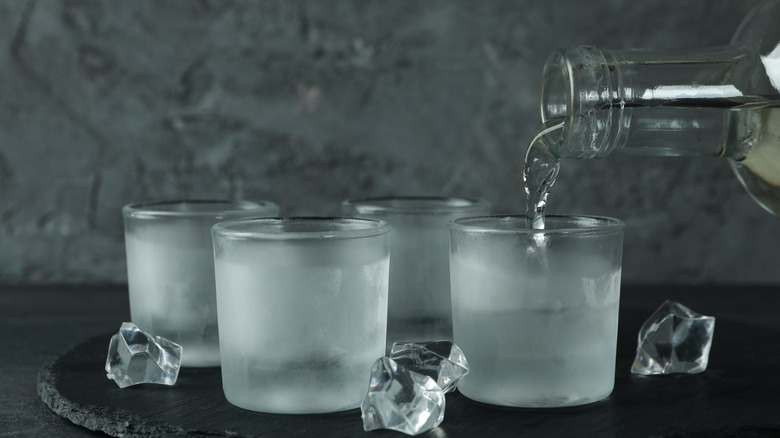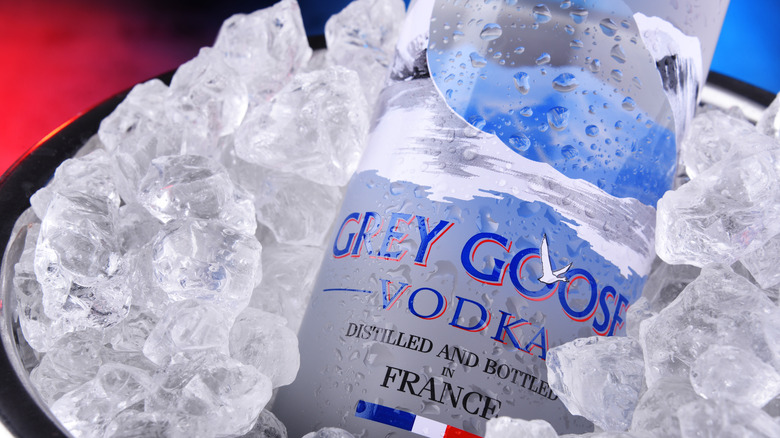The Scientific Reason Vodka Doesn't Freeze
If you've ever prepared for a party by stocking up on bottles of liquor, or perhaps just don't have a lot of space in your kitchen, you might simply pop your bottle of vodka in the freezer. After all, it's an easy place to store beverages out of sight, and it helps bring the temperature of the alcohol down quickly, meaning you won't have to wait for the drink to cool if you or your guests want to enjoy a boozy drink without the rocks. But of course, if you try to do this with other alcoholic beverages, like beer or wine, you're apt to end up with a frozen, undrinkable lager or pinot grigio. Storing drinks in the freezer really only works for vodka or other liquors with a high alcohol-by-volume content.
But why does vodka stay perfectly liquid, even at extremely low temperatures, while other products turn into blocks of ice? It turns out that the answer has to do with the freezing point of different liquids. While water has a freezing point of 32 degrees Fahrenheit, the freezing point of alcohol is much lower, according to Taste of Home.
High-quality vodka shouldn't be stored in the freezer
Most standard vodkas have an alcohol-by-volume content of about 40 percent, which has a standard freezing temperature of around -17 degrees Fahrenheit, or -27 degrees Celsius — much lower than your typical freezer temperature, per The Spruce Eats. However, just because you can keep vodka in the freezer, that doesn't mean you really should. Pretty much all vodka experts recommend against storing pricey vodka, or really any other type of expensive alcohol, in your freezer. According to Francois Thibault, the creator of Grey Goose vodka, storing the bottle in below freezing temperatures has a detrimental effect on the taste of the spirit. High quality vodkas should be soft and drinkable at about 0-4 degrees Celsius, and they contain notes of subtle flavors and aromas that are diminished when the drink is stored in the freezer (via Business Insider).
However, it may not always be a bad idea. If your preferred brand of vodka happens to be on the cheaper side, then the extreme cold may help dilute the sharper, more aggressive notes of the alcohol that can make it burn going down. So while it might not be a bad idea for the more bottom-shelf liquors, if you are planning on shelling out the extra dough for a more premium spirit, you definitely don't want that money to go to waste by dulling the soft, sophisticated flavors that make the pricier vodkas worth the extra cash.

